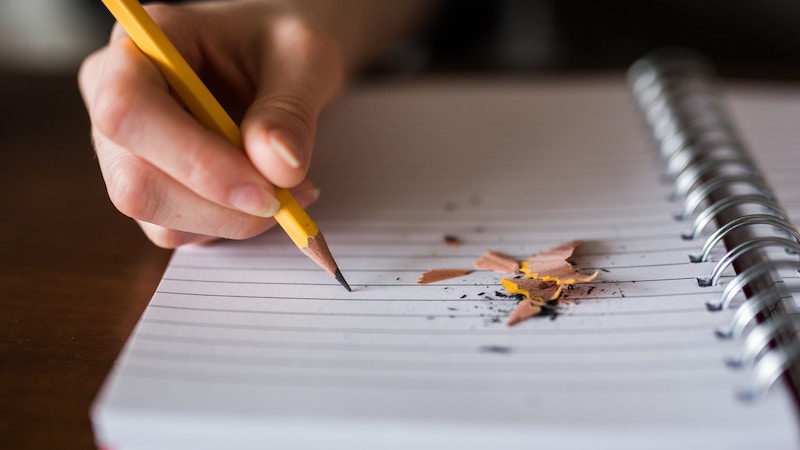The Right Kind of Practice
Episode #8 of the course The science of learning by Benjamin Keep
Welcome back.
We have talked a lot about how to acquire knowledge. But what about acquiring complicated skills? I might know that tossing pizza dough helps create a moist, delicious crust, but how in the heck do I get better at doing it?
Well, practice. Generally speaking, you get better at what you practice. The trick is figuring out what you’re actually practicing.
Deliberate Practice
Anders Ericsson is the world’s leading expert on expertise development. He began his research with a question: What makes experts the best in the world at what they do? His answer: not talent, but a special kind of practice that he dubbed “deliberate practice.”
Often, we don’t practice wisely. I can remember practicing the piano when I was a kid, often playing the same songs I already knew how to do over and over again. But practicing what you already know how to do is like not practicing at all. You’re not improving your skills, you’re just repeating your behavior.
Deliberate practice has several specific features.
1. The practice targets an expert skill.
2. The practice is challenging for you to do.
3. You get appropriate feedback about your performance.
4. You reflect and evaluate the feedback.
5. You get more opportunities to practice.
Deliberate practice is a cycle of trying to perform (and making mistakes), learning which mistakes you made, and improving performance next time. It also has predictable results: It’s usually exhausting. You’re pushing yourself. You’re not going to perform perfectly.
Feedback
Feedback is the key component of deliberate practice—it’s any information that you get about your performance. It is probably the most important aspect of learning any skill. Positive feedback feels good (“You did great—don’t change a thing!”) but usually doesn’t help you learn because it doesn’t identify anything for you to change. Negative feedback (“Your voice was low, we couldn’t hear you in the back”), which tells you what you did wrong, leads to learning. Environments without feedback at all or with feedback unrelated to performance (like short-term results in poker) make it very difficult to learn.
The best feedback is specific, timely, and understandable. Compare: “This needs to be re-written” (not specific) to “You should use an active construction instead of a passive one for this sentence” (specific). Vague feedback makes it difficult for learners to know how to improve.
Timely feedback arrives when the learner still remembers what they did. Compare getting feedback on your paper the day after you turn it in, to getting feedback a month afterward. In this case, the immediate feedback is more timely. If someone provided feedback after every sentence you wrote, it would also be less effective because you probably wouldn’t learn why one way was better than another.
Feedback is understandable when learners can interpret the feedback effectively. Imagine you’re an actor trying to improve your performance. The director’s notes after your performance provide one source of feedback, but going over a recording of the performance would make the notes more understandable.
How Can These Ideas Help?
Use the features of deliberate practice as a checklist on your learning activities. Does it target an expert task? Is it challenging for you? Is there appropriate feedback? Are you making time to reflect on how to improve?
Seek out expert feedback. Make use of office hours. Make use of Q&As. Ask questions on forums. It’s especially important to seek specific feedback that will help you improve, instead of vague or reinforcing, positive feedback.
If you can develop your own standards for accomplishing some task, then you can provide informative feedback to yourself. So, if you are learning to program, one way you might test yourself is by writing a program from scratch that uses the tools you’ve learned.
Effective learners also tend to interpret feedback productively. When you receive negative feedback, it’s usually not fun. It’s easy to take it personally, as indicative of your innate abilities. Effective learners attribute negative feedback to the performance—it was the strategy we used to solve a problem or how we played the concerto, not our innate abilities. This way, we can focus on what we need to do better next time.
For my Chinese studying, I need to be out there practicing speaking and listening. That’s the expert practice that I need. I can’t stay in listening to audio recordings and doing textbook exercises. How can you make your practice more relevant?
Next lesson, we discuss an important aspect of practicing in the right way: how to make meaningful assessments of what you know.
Happy learning!
Ben
Learn Something New Every Day
Get smarter with 10-day courses delivered in easy-to-digest emails every morning. Join over 400,000 lifelong learners today!
Recommended book
Peak: Secrets from the New Science of Expertise by Anders Ericsson and Robert Pool
Share with friends

